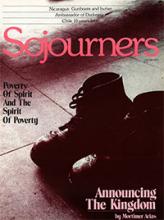On September 11, 1973, the Chilean military overthrew the democratically elected government of President Salvador Allende. Since then, torture, banishment, exile, arrests, disappearances, and widespread intimidation have earned the military regime of General Augusto Pinochet worldwide infamy. Ten years after the coup, the Chilean people face an inflation rate of approximately 30 per cent, unemployment and underemployment of close to the same, and a dramatic 14 per cent drop in the gross national product in 1982. Chileans have taken to the streets in protest.
On May 11, 1983, a National Day of Protest was called by Rodolfo Seguel, president of the Copper Workers Federation (CTC), and the National Workers Coalition (CNT). The protest swelled Santiago. Thousands of Chileans marched and rallied in opposition to the policies of Pinochet. Some banged pots and pans in a cacerolazo reminiscent of the 1971 anti-Allende "March of the Empty Pots."
The protest was more successful than anyone expected, and it reinforced civil disobedience as a strategy for action. Nonviolent protests included partial work stoppages and slowdowns. Some schools reported more than 70 per cent absenteeism, and shop sales were down by about the same percentage.
A psychological state of impotence was transformed into one of power. Organization at the political and social level was reactivated, and national coalitions formed. The organizers of the May 11 protest called for a National Day of Protest to be held each month until Pinochet meets their demands. One newspaper, La Segunda, reported, "A new era has begun, encouraged by the high level of public discontent and the government's loss of support that is acknowledged by practically everyone."
Read the Full Article

